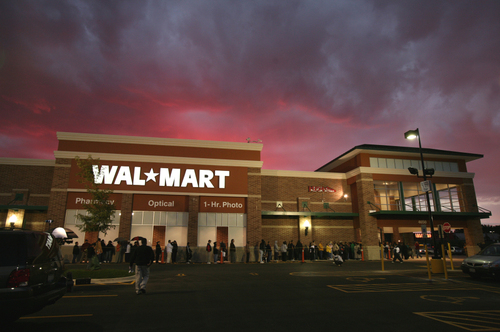With Africa’s growing middle class and its urban populations expanding, it is little wonder more and more international retailers are looking to the continent in the hope of finding new markets, new consumers, and new profits. One of the latest – and potentially most significant – frontiers in this burgeoning trend is food.
The race to control the future of food consumption in Africa is well underway. In 2011, Walmart led the charge as it acquired the South African-based Massmart.
And last year, French hypermarket multinational Carrefour revealed its own intentions for the continent when it inked a joint venture with CFAO, a well-established international goods distributor which targets Africa’s commerce.
In assessing what this wave of interest could mean for Africa, it’s worth looking to the experience of the U.S., as painstakingly detailed by John Kenneth Galbraith. From his point of view, the move to larger retail formats in the U.S. was fundamentally rooted in an effort to ‘countervail’ or counteract the pricing power of manufacturers.
By growing into large chains and buying in bulk, Galbraith noted that food retailers were able challenge the market power of their suppliers. This meant that food prices for consumers dropped, but in the process, smaller ‘mom and pop’ stores and public food markets were largely condemned to the dustbin of history.
Now with big food retailers looking to repeat their successes as they expand into Africa, the local entrepreneurs and small and medium enterprises (SMEs) currently at the heart of African food retailing could be similarly under threat.
But, thankfully, this fate is not written in stone. In fact, new entrants to the African food market today have an unprecedented opportunity to reinforce the capacity of local players.
While they cannot be expected to save Africa’s farmers markets, big food sellers could transform food distribution in ways that buttress employment generation and Africa’s food cultures. But to do so they will need to treat the mass market as a genuine source of both demand and supply.
There is little doubt that the entry of big food retailers risks dousing these sparks of entrepreneurial desire.
If big retailers become powerful enough, they could choose to stock shelves with cheaper foreign products than those made locally. Employment generation and industrial development would necessarily suffer.
Similarly, if market landscapes came to be dominated by individual retail giants, those firms could employ their power to control the prices they charged. A singular drive for profit could contribute to food price inflation, while if competition persisted, these firms could easily use discount strategies to undercut public markets.
Read the full story at: allafrica.com



